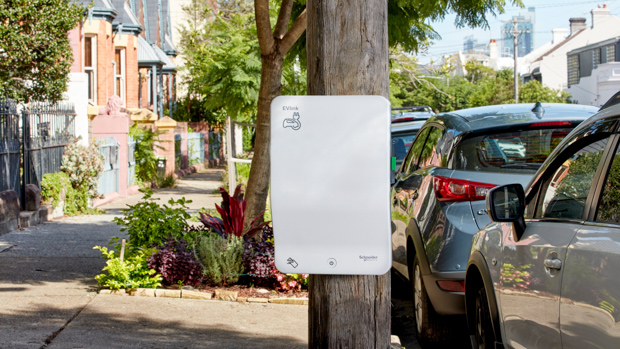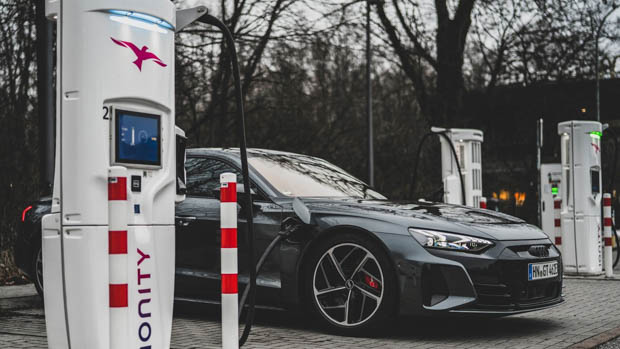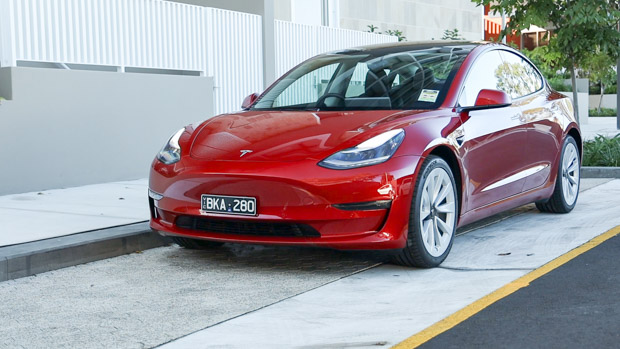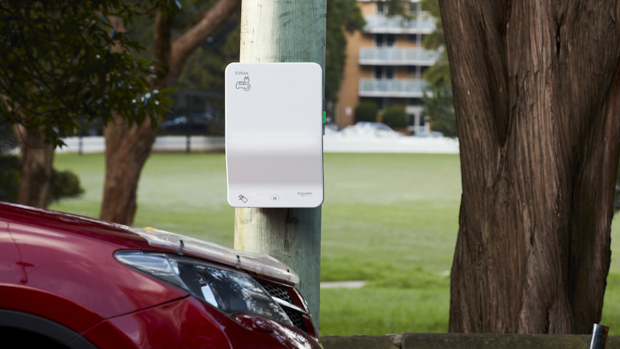-
Car Reviews
- All reviews
- Midsize SUVs
- Small cars
- Utes
- Small SUVs
- Large SUVs
- Large cars
- Sports SUVs
- Sports cars
- Vans
Latest reviews
- Car News
-
Car Comparisons
Latest comparisons
- Chasing Deals
The new initiative aims to make it easier for electric vehicle buyers to top up their car at home if they don’t have access to a regular charging location
Street-side electric vehicle charging points will be installed on power poles in multiple suburbs across New South Wales under a new trial.
The initiative will see 50 chargers installed in nine councils across the state, in an effort to monitor how easily accessible chargers would impact EV owners and the wider grid.
The project will also monitor if the pole-mounted chargers are commercially viable and, if deemed so, the chargers could be rolled out on up to 190,000 locations across the country, according to Intellihub who has been tasked with monitoring the trial.
A total of $2.04 million has been allocated to the project, with $871,000 of that provided by the federal government’s Australian Renewable Energy Agency (ARENA).
The chargers will be installed at nine councils across NSW, including Waverley, Woollahra, Randwick, Lake Macquarie, Ryde, Singleton, Parramatta, Northern Beaches and Inner West local councils.
Exact locations will be determined based on nominations from councils who will consider factors such as resident feedback, expected demand, traffic access and parking availability.
A spokesperson from Intellihub told Chasing Cars it aimed to have the chargers in place within six months, with an assessment of the project carried out after 12 to 18 months.
The chargers will be placed on power poles and feed directly off the grid but will only be able to top up vehicles at a rate of 7.4kW.
For context, a Tesla Model 3 Standard Range sedan has a battery size of 62.3kWh, meaning it would take roughly nine hours to charge the EV from flat to full, while the 95kWh unit in the Audi E-Tron large SUV would take around 13 hours to complete the same feat.
Intellihub has said the charging speeds will be enough to allow for “convenient top-ups and overnight charging”, with each location designed to service up to 10 households.
The exact cost users will pay is currently unclear, with drivers using an app supplied by electric vehicle charging solutions company EVSE to complete the transaction.
The project is backed by what ARENA says is a clear need for more at-home charging infrastructure as some 1.9 million households do not have access to off-street parking.
Even then, access to street parking or individual garages doesn’t always guarantee access to a charging point within reach of the driver’s carpark.
Electric car sales are currently low in Australia, recorded at 1.95 percent of the overall market in 2021, more than double that of the 0.78 percent recorded the previous year.
The Australian Energy Market Operator predicts that EV sales will make up roughly 10 percent of the overall market by 2025, meaning roughly 105,000 combustion-free cars would hit the market in a single year if overall sales remained on par with 2021.
Latest news
About Chasing cars
Chasing Cars reviews are 100% independent.
Because we are powered by Budget Direct Insurance, we don’t receive advertising or sales revenue from car manufacturers.
We’re truly independent – giving you Australia’s best car reviews.



